Description
ABSTRACT
An Examination of the Liability of Natural Persons/Individuals for Failure to Demand for Tax Clearance Certificate (TCC) on Foreign Exchange Transactions under Section 85 (2) and (9) of PITA
Nnamdi Oragwu* & Ifeanyi Ujah**
There has been a renewed attempt by the Inland Revenue Services of the States and the Federal Capital Territory (revenue authorities) to maximize revenue from taxation to finance the increasing government expenditures in Nigeria. To achieve this, the revenue authorities have deployed both civil and criminal proceedings under the enabling laws. One of such enabling laws is the Personal Income Tax Act (PITA) 1993 (as amended), which in section 85 created the requirements of tax clearance certificate (TCC) and mandated specific persons under the section to demand for TCC when dealing with the public during applications or transactions specified therein. Furthermore, the section criminalised the non-compliance with the requirements therein. Thus, the revenue authorities have recently weaponised penal provisions of section 85 of PITA against corporate and individual persons based on alleged failure to demand for TCC, without reference to the scope of persons liable for the failure to demand for TCC as required under the section. Accordingly, this article examines the provisions of section 85 of PITA, as well as relevant statutory provisions and legal principles, and concludes that penal provisions of section 85 (2) & (9) of PITA apply to government bodies (e.g., ministries, departments, agencies) or corporate entities (e.g., commercial banks) who are mandated to demand for TCC, and not to natural persons/individuals.
Keywords: Tax Clearance Certificate, Tax Compliance, Tax Prosecution, Constitution, Tax Authorities.
INTRODUCTION
The law is trite that an offence for which an accused is to stand trial must be known to law. Thus, section 36(12) of the Constitution of the Federal Republic of Nigeria (1999), as amended, unequivocally provides that a person shall not be convicted of an offence unless the offence is defined in a written law which also prescribes the penalty for the offence.1 Thus, where a charge does not state the definition of an offence for which an accused is to stand trial, the same will be unconstitutional, incurably flawed and void ab initio. Similar consequences arise when a defendant charged is not captured within the scope of the defendant under the law provided for the offence charged. In FRN v Ifegwu,2 the Supreme Court affirmed that a count, which is an indictment on the conduct of an accused, must be specific. It must be tied to the offending section of the penal statute to enable the court to deal with the specific criminal conduct. However, without regard to the above principles, we have witnessed the ongoing prosecution of individuals for the alleged failure to
* LL.B (Hons) UNIBEN, BL, FCTI, FBRIPAN
** LL.B (Hons) UNN, BL, ACITN, AICMC
- Aoko v Fagbemi [1961] All NLR 400 and Attorney General of the Federation v Clement Isong [1986] 1
QLRN 75. - [2003] 15 NWLR (pt 842) 113, 128

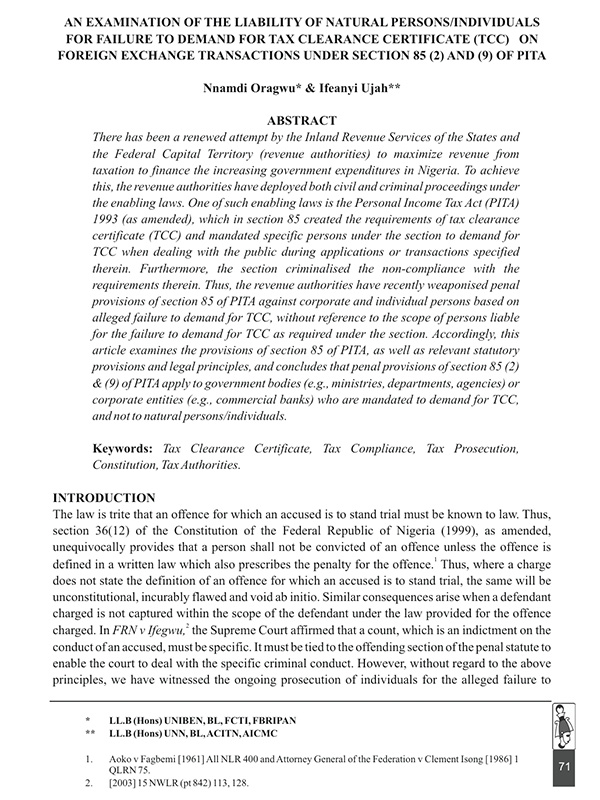
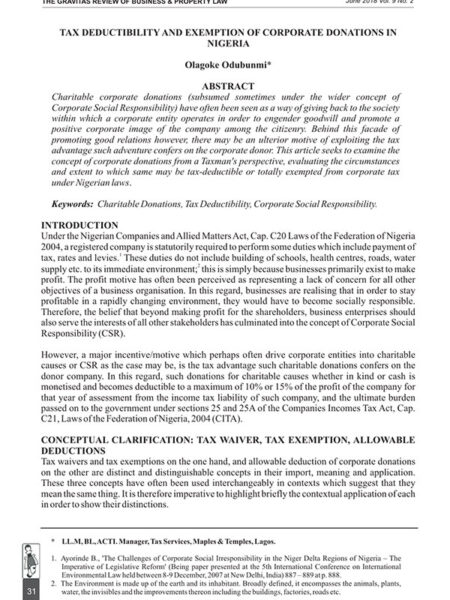
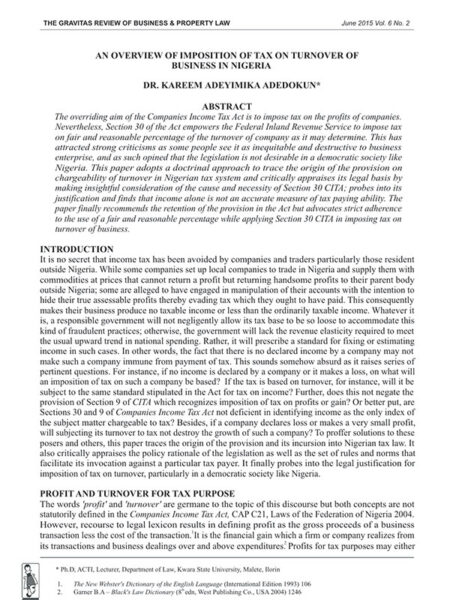
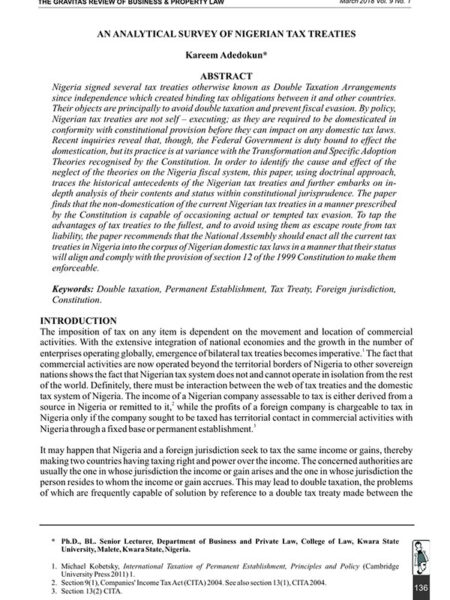
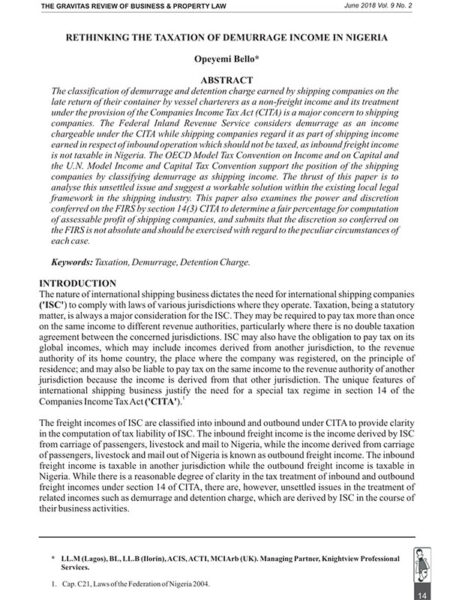


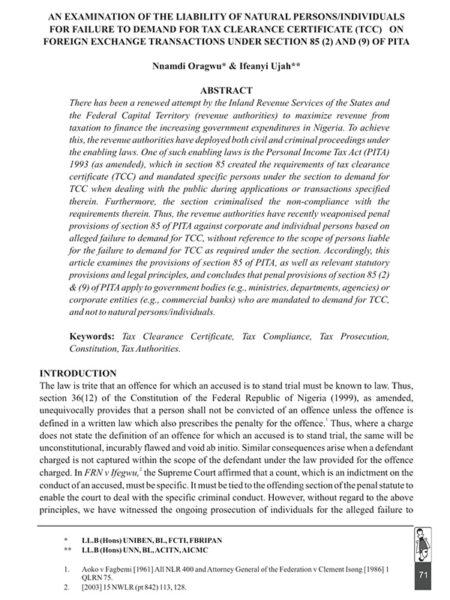
Reviews
There are no reviews yet.